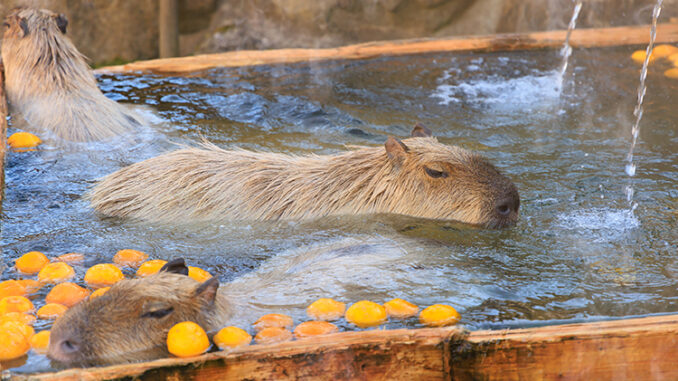
The winter solstice is the shortest day of the year. Throughout the day, it does not look as though the sun is moving across the sky. In ancient times, people believed that the sun was really standing still. In fact, the word “solstice” comes from the Latin term solstitium. It means, “the Sun stands still.”
Today, there are still many beliefs about the winter solstice. In Japan, people take warm baths in a fruit called yuzu. They believe this will refresh their body and spirit in the year to come. Recently, zoos have begun to give animals baths in yuzu as well. The capybara, a rodent that resembles a guinea pig, are especially known to enjoy warm yuzu baths.
In South Korea, the winter solstice is known as Dongji. People eat a red porridge called patjuk. Red is a color many South Koreans bring good luck. They also wish for snow on the solstice. They believe snow on the solstice will bring a good harvest in the spring.
Many discoveries have been made on the winter solstice. Apollo 8, the first spaceship to land on the moon, launched on the winter solstice. Marie Curie discovered the element radium on the winter solstice. The pilgrims even landed at Plymouth Rock on the winter solstice. This has led people to believe the winter solstice ushers in new beginnings.
What Do You Think? Do you have any beliefs about the winter solstice?
Photo Credits:taka4332/iStock/Getty Images



